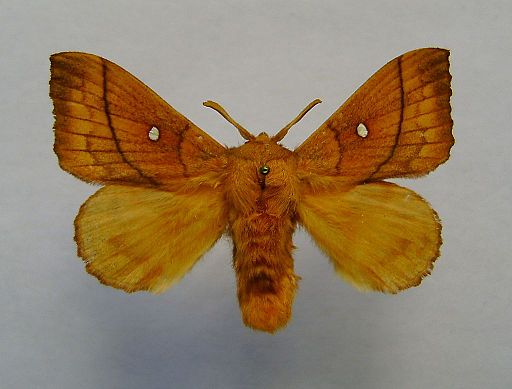Superregnum: Eukaryota
Regnum: Animalia
Subregnum: Eumetazoa
Cladus: Bilateria
Cladus: Nephrozoa
Cladus: Protostomia
Cladus: Ecdysozoa
Cladus: Panarthropoda
Phylum: Arthropoda
Subphylum: Hexapoda
Classis: Insecta
Cladus: Dicondylia
Subclassis: Pterygota
Cladus: Metapterygota
Infraclassis: Neoptera
Cladus: Eumetabola
Cladus: Endopterygota
Superordo: Panorpida
Cladus: Amphiesmenoptera
Ordo: Lepidoptera
Subordo: Glossata
Cladus: Coelolepida
Cladus: Myoglossata
Cladus: Neolepidoptera
Infraordo: Heteroneura
Cladus: Eulepidoptera
Cladus: Ditrysia
Cladus: Apoditrysia
Cladus: Obtectomera
Cladus: Macroheterocera
Superfamilia: Lasiocampoidea
Familia: Lasiocampidae
Subfamilia: Lasiocampinae
Tribus: Odonestini
Genus: Odonestis
Species: O. angulata – O. apo – O. belli – O. bheroba – O. bolotovi – O. ceylonica – O. divisa – O. erectilinea – O. filigranica – O. formosae – O. germari – O. gisla – O. leopoldi – O. lipara – O. kama – O. maya – O. ophioglossa – O. pinratanai – O. pruni – O. schalicteta – O. vinacea – O. vita
Name
Odonestis Germar, 1812
Type species: Phalaena Bombyx pruni Linnaeus, 1758
Synonyms
Chrostogastria Hübner, [1820] 1816
Phylloxera Rambur, 1866 (preocc. by Phylloxera Boyer de Fonscolombe, 1834 Insecta: Hemiptera)
Lobocampa Wallengren, 1869
Pseudarguda Matsumura, 1932
Odonestis pruni
References
Sergeev, A.I. & Zolotuhin, V.V. 2010: A review of the genus Odonestis Germar, 1812 with descriptions of two new species and one new subspecies (Lepidoptera, Lasiocampidae). Atalanta 41(3-4): 375-396. full article (pdf).Reference page.
Spitsyn, V.M. & Potapov, G.S. 2020a. A new species of the genus Odonestis from the Flores Island, Indonesia (Lepidoptera: Lasiocampidae). Ecologica Montenegrina 29: 47-50. Full article (PDF). Reference page.
Zolotuhin, V.V. & J.D. Holloway, 2006, The Lasiocampidae of Sulawesi, Tinea 19 (3): 244–259.
Zolotuhin, V.V. & S. Ihle, 2008 : The Lasiocampidae (Lepidoptera) of Laos. Tinea 20(4): 217–235.
Zolotuhin, V.V. & Sinyaev, V.V. 2011. The Lasiocampidae (Lepidoptera) of Laos. Part 2. Neue Entomologische Nachrichten 67: 37–39. Full article (Zobodat). Reference page.
Odonestis is a genus of moths in the family Lasiocampidae described by Ernst Friedrich Germar in 1812.[2] It consists of twenty-two species,[3] which is found in Europe, Russia, Asia Minor, China and Japan.[2]
Description
The wingspan is 30–50 mm for males and 50–60 mm for females. The moths fly from May to June and again from August to September depending on the location. Palpi very long and slender. Antennae with shorter branches in female than male. Legs with very minute spurs. Forewings are long with acute apex. Outer margin obliquely rounded. Veins 6 and 7 stalked. Stalk of veins 9 and 10 short. Hindwing with veins 4 and 5 from cell or stalked. Vein 8 curved, and met by a bar from vein 7. The accessory costal veinlets are numerous and prominent.[4]
Ecology
The larvae feed on Prunus, Pirus, Quercus, Tilia, Betula, Alnus, Ulmus, Crataegus, Salix and Rhamnus species.[2]
Species
Odonestis angulata
Odonestis apo
Odonestis belli
Odonestis bheroba
Odonestis ceylonica
Odonestis divisa
Odonestis erectilinea
Odonestis filigranica
Odonestis formosae
Odonestis germari
Odonestis gisla
Odonestis leopoldi
Odonestis lipara
Odonestis kama
Odonestis maya
Odonestis ophioglossa
Odonestis pinratanai
Odonestis pruni
Odonestis schalicteta
Odonestis vinacea
Odonestis vita
References
Beccaloni, G.; Scoble, M.; Kitching, I.; Simonsen, T.; Robinson, G.; Pitkin, B.; Hine, A.; Lyal, C., eds. (2003). "Odonestis". The Global Lepidoptera Names Index. Natural History Museum. Retrieved April 21, 2018.
Savela, Markku. "Odonestis Germar, 1812". Lepidoptera and Some Other Life Forms. Retrieved November 19, 2018.
"Genus: Odonestis • 7 living spp". Catalogue of Life. October 30, 2018. Retrieved November 19, 2018.
Hampson, G. F. (1892). The Fauna of British India, Including Ceylon and Burma: Moths Volume I. Taylor and Francis – via Biodiversity Heritage Library.
Retrieved from "http://en.wikipedia.org/"
All text is available under the terms of the GNU Free Documentation License


